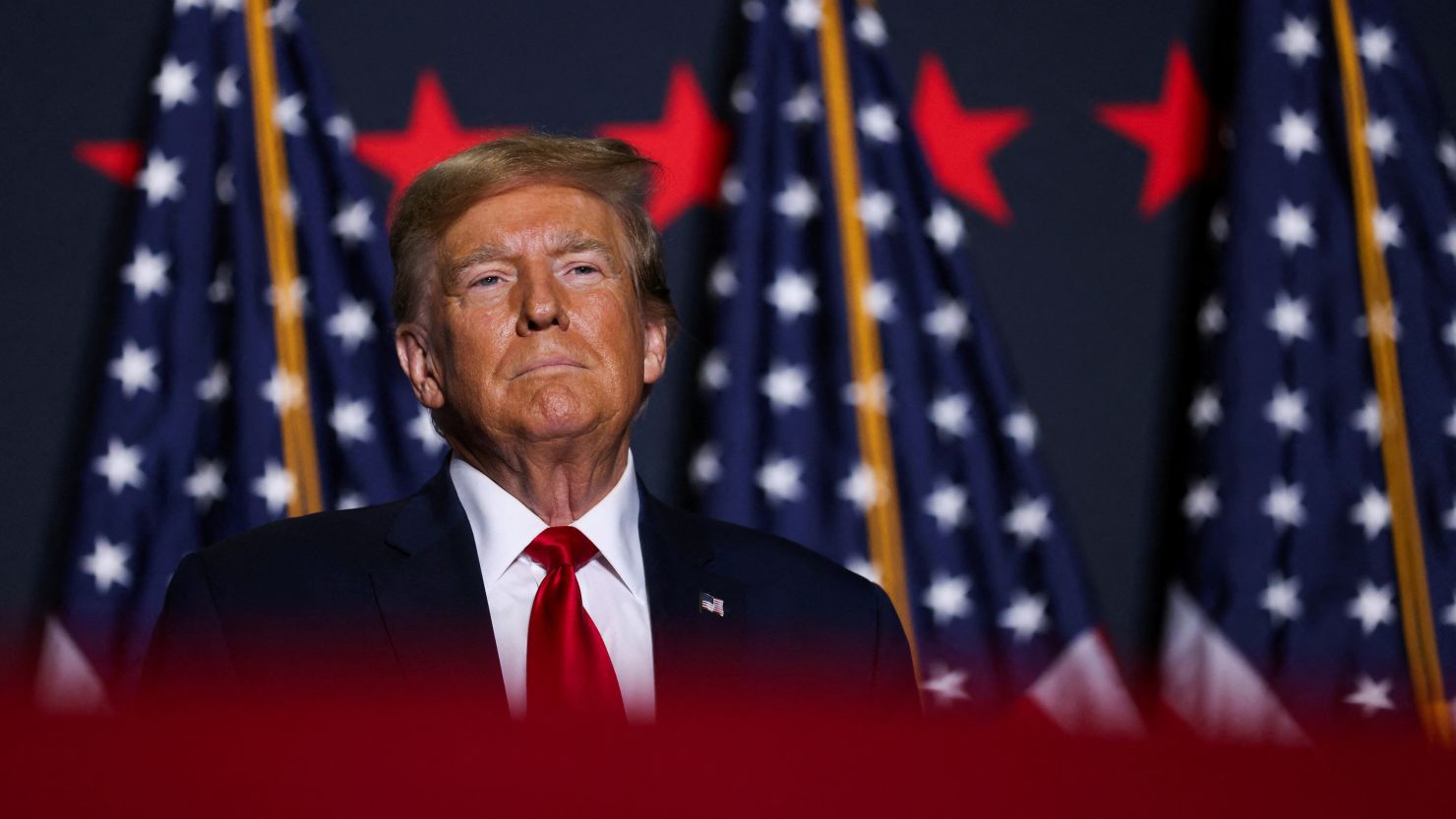Civil lawsuits seeking to hold Trump accountable for January 6 can move forward

Civil lawsuits seeking to hold Donald Trump accountable for the January 6, 2021, US Capitol attack can move forward after the former president declined to ask the Supreme Court to decide whether he is shielded by presidential immunity.
A federal appeals court in December cleared the way for three lawsuits brought against Trump by Democratic lawmakers and US Capitol Police officers to proceed, unanimously holding that not everything a president does or says while in office is protected from liability.
Trump faced a Thursday deadline to seek the Supreme Court’s review of that decision, but his legal team declined to turn to the high court.
The case could still eventually come before the Supreme Court.
The decision to not turn to the justices is a departure from how Trump’s team has been handling stinging lower-court rulings as he barrels toward the 2024 Republican presidential nomination.
And last week, the justices heard oral arguments in a dispute over whether Trump should be disqualified from the ballot for his conduct on January 6, with a majority of them appearing ready to back the former president in the case.
In the civil immunity matter, the plaintiffs in the three underlying lawsuits have all seized on Trump’s speech on January 6, alleging that his words led to the subsequent attack on the Capitol.
The lawmakers claimed in a pair of lawsuits that they were threatened by Trump and others as part of a conspiracy to stop the congressional session that would certify the 2020 presidential election. They argue Trump should bear responsibility for directing the assaults.
The police officers said in their suit that they were hit by chemical sprays and objects attendees threw at them because Trump inspired the crowd.
Lower courts sided with the plaintiffs as Trump sought to have the cases dismissed based on his claims of presidential immunity. A federal judge in DC ruled in 2022 that Trump’s statements to his supporters before the riot “is the essence of civil conspiracy” because Trump spoke about himself and rallygoers working “towards a common goal” of fighting and walking down Pennsylvania Avenue.
“And when he acts outside the functions of his office, he does not continue to enjoy immunity. … When he acts in an unofficial, private capacity, he is subject to civil suits like any private citizen,” the court said in the unanimous ruling authored by Chief Judge Sri Srinivasan.
The Supreme Court is still considering whether to step into Trump’s federal criminal case related to January 6. In his emergency request earlier this week, the former president asked the high court to pause the DC Circuit’s ruling so he can appeal it to the justices and, potentially, a panel consisting of all the judges on the appeals court.
In the DC Circuit’s ruling last week, the judges left no question that Trump can be prosecuted by Smith, writing: “For the purpose of this criminal case, former President Trump has become citizen Trump, with all of the defenses of any other criminal defendant.”
“But any executive immunity that may have protected him while he served as President no longer protects him against this prosecution,” the judges said.
For now, Trump’s trial on federal charges that he worked to undermine the results of the 2020 election remains paused as the high court considers what to do with his emergency request.
Source: CNN.com



